Introduction
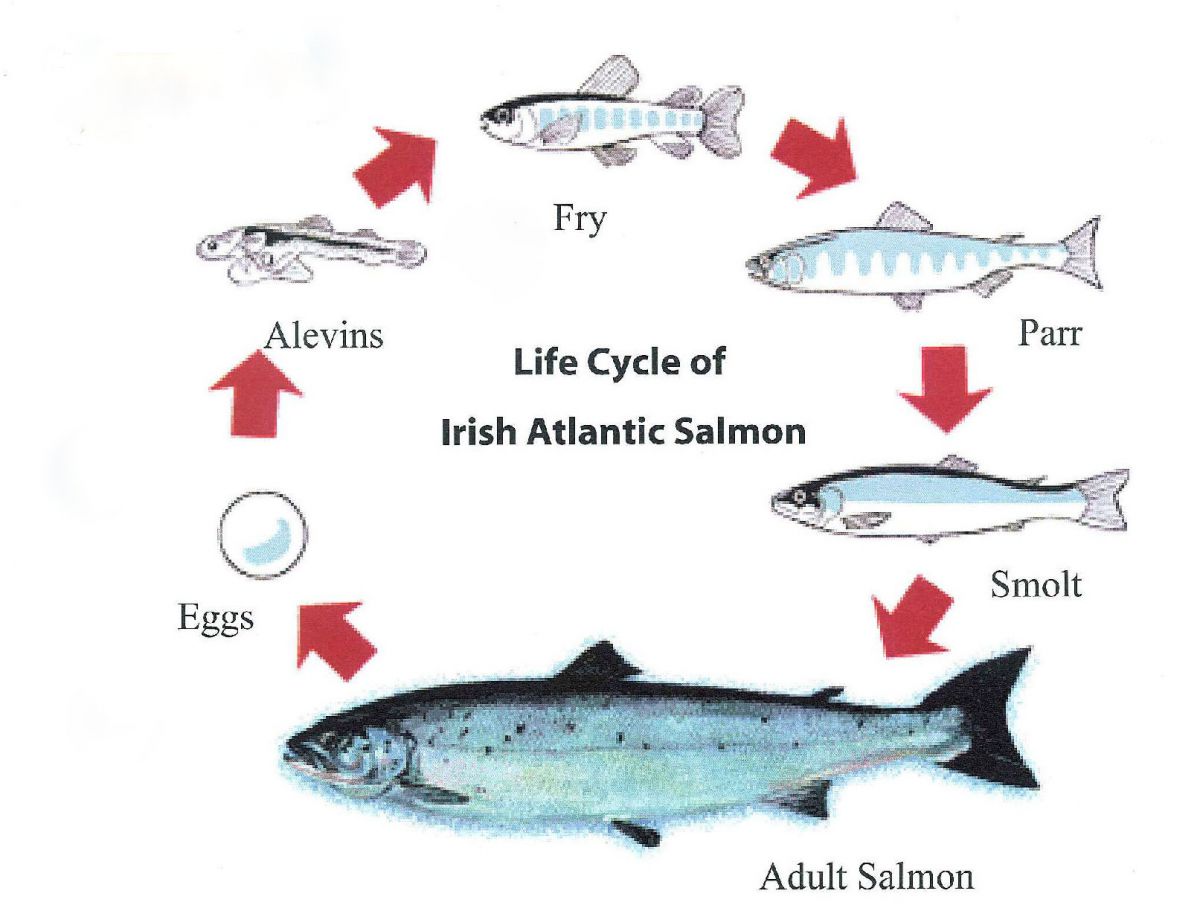
Salmon is a beloved and nutritious seafood option for many people. Whether cooked, smoked, or enjoyed fresh, understanding the shelf life of salmon is crucial to ensure its quality and safety. By knowing how long salmon can last and following proper storage techniques, you can avoid food waste and enjoy this delicious fish at its peak freshness. This article will explore the factors that affect the shelf life of salmon, provide tips for storing fresh, frozen, cooked, and smoked salmon, and highlight best practices to maintain its freshness and safety.
Explanation Of The Importance Of Understanding The Shelf Life Of Salmon
Understanding the shelf life of salmon is important for several reasons. First and foremost, it ensures that you consume salmon at its peak freshness and flavor. By knowing how long salmon can last, you can prevent spoilage and avoid consuming potentially unsafe or spoiled fish. Additionally, understanding the shelf life allows you to plan your meals and avoid unnecessary food waste. By properly storing salmon and consuming it within its recommended timeframe, you can maximize its nutritional value and enjoy its delicious taste.
Factors That Affect The Shelf Life Of Salmon
Several factors can affect the shelf life of salmon. These factors include the quality of the salmon itself, the storage conditions, and the handling practices.
- Quality of the salmon: High-quality fresh salmon will typically have a longer shelf life than salmon that is closer to expiration. It is important to purchase salmon from a reputable source and check for any signs of spoilage before storing it.
- Storage conditions: The temperature at which salmon is stored plays a crucial role in its shelf life. Storing salmon at temperatures below 40°F (4°C) helps slow down bacterial growth and maintain its freshness.
- Handling practices: Proper handling of salmon is essential to prevent contamination and ensure its longevity. Salmon should be handled with clean hands and utensils to avoid introducing bacteria. It is also important to properly package and seal the salmon to prevent moisture loss and freezer burn.
By considering these factors and following proper storage practices, you can maximize the shelf life of salmon and enjoy it at its best quality.
Fresh Salmon
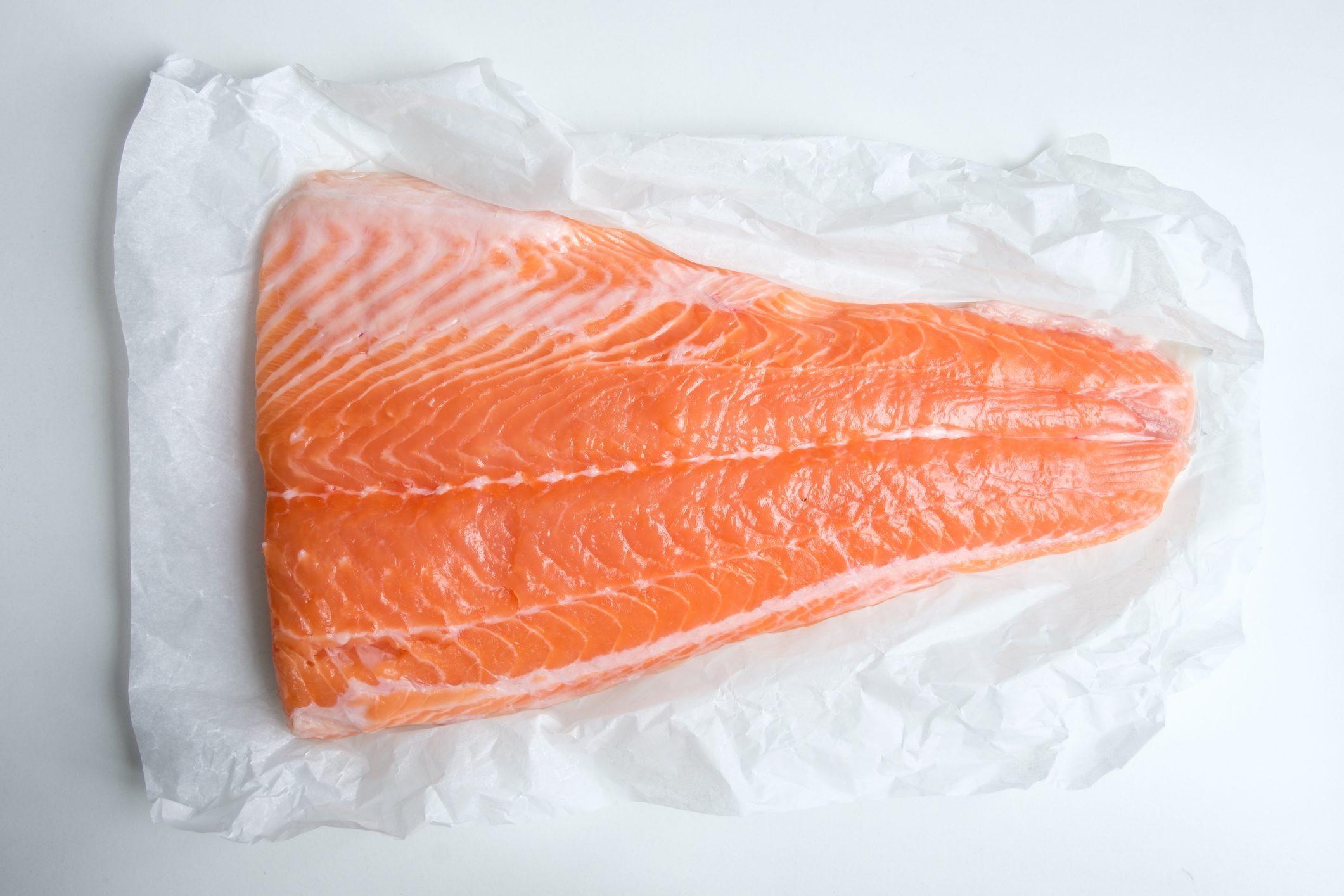
Fresh salmon is known for its delicate and vibrant taste. It is important to understand the characteristics of fresh salmon to ensure its optimal shelf life. Fresh salmon should have firm and moist flesh with a mild aroma. To keep fresh salmon at its best, it should be stored in the refrigerator at a temperature below 40°F (4°C) and consumed within 2 days of purchase. It is recommended to wrap fresh salmon tightly in plastic wrap or place it in a resealable plastic bag to prevent air exposure and potential contamination. Regularly checking for any signs of spoilage, such as a strong fishy odor or slimy texture, is crucial to maintaining the freshness of fresh salmon.
Characteristics Of Fresh Salmon
Fresh salmon is known for its delightful characteristics. It should have firm and moist flesh, with a vibrant pink or orange color. The flesh of fresh salmon should be translucent and glossy, indicating its freshness. The aroma of fresh salmon is mild and reminiscent of the ocean. It should not have a strong, fishy smell. When pressed, the flesh of fresh salmon should bounce back and not leave an indent. These characteristics are essential in determining the freshness and quality of fresh salmon.
Storage Tips For Fresh Salmon
To extend the shelf life of fresh salmon, it is important to store it properly. Here are some storage tips for fresh salmon:
- Keep it cold: Store fresh salmon in the coldest part of your refrigerator, ideally at a temperature below 40°F (4°C).
- Use an airtight container: Place the salmon in an airtight container or wrap it tightly in plastic wrap to prevent air exposure and moisture loss.
- Keep it separate: Store salmon away from other foods to prevent cross-contamination and unwanted odors.
- Avoid freezing fresh salmon: Fresh salmon is best consumed within a few days of purchase, so it’s recommended to avoid freezing it for optimal taste and texture.
By following these storage tips, you can prolong the freshness and quality of your fresh salmon.
Frozen Salmon

Frozen salmon is a convenient option for those who want to extend the shelf life of their fish. When properly stored, frozen salmon can last for about 9-12 months in the freezer. It is important to package the salmon tightly to prevent freezer burn and maintain quality. To freeze salmon, wrap it in airtight plastic wrap or place it in a freezer-safe container. Make sure to label the package with the date to keep track of its freshness. When thawing frozen salmon, it is recommended to defrost it in the refrigerator overnight for the best results.
Benefits Of Freezing Salmon
Freezing salmon offers several benefits. First, it allows you to extend the shelf life of the fish, ensuring that it stays fresh for a longer period of time. Freezing also preserves the nutritional value of the salmon, including its omega-3 fatty acids and protein content. Additionally, freezing salmon can be a cost-effective option as it allows you to take advantage of sales or bulk purchases without worrying about spoilage. By freezing salmon, you can have a convenient and readily available source of protein that can be used in various recipes whenever needed.
Proper Freezing Methods For Longer Shelf Life
To ensure a longer shelf life for frozen salmon, proper freezing methods are essential. Here are some tips to follow:
- Start with fresh salmon: Freeze the fish as soon as possible after purchasing or catching it to maintain its quality.
- Wrap tightly: Wrap the salmon tightly in plastic wrap or aluminum foil to prevent air and moisture from entering, which can lead to freezer burn.
- Use freezer-safe packaging: Place the wrapped salmon in a freezer-safe bag or container to provide additional protection against freezer burn.
- Label and date: Clearly label the packaging with the date of freezing to keep track of its shelf life.
- Proper storage temperature: Set the freezer temperature at or below 0°F (-18°C) to maintain the quality of the frozen salmon.
- Avoid refreezing: Once you thaw frozen salmon, it is best to use it immediately. Refreezing can affect the texture and taste of the fish.
By following these proper freezing methods, you can extend the shelf life of your salmon and enjoy it at its best quality when you’re ready to use it.
Cooked Salmon
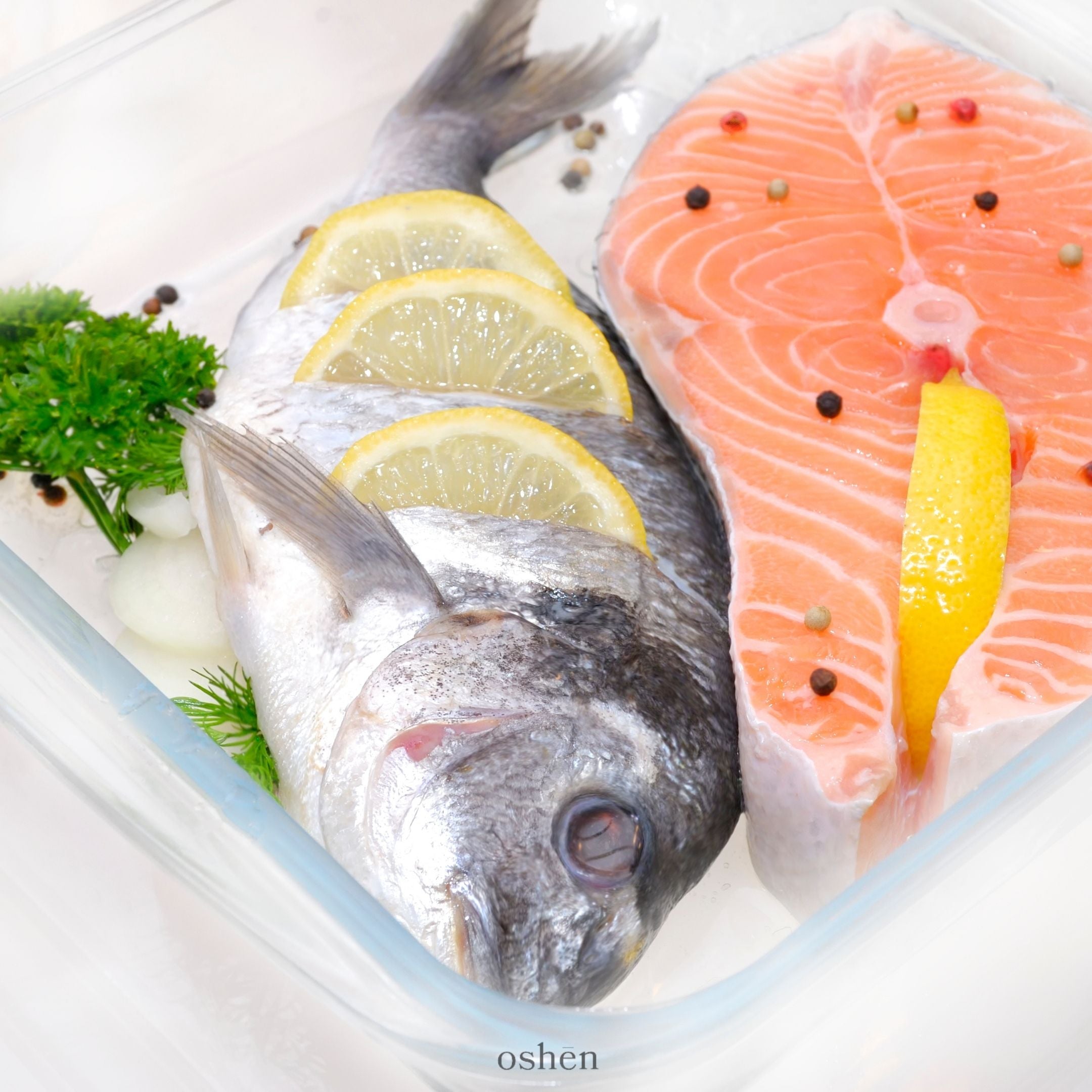
Cooked salmon can be a delicious and versatile addition to any meal, but it’s important to know how long it can last in the fridge. On average, cooked salmon can be safely stored in the refrigerator for up to three to four days. To keep it fresh, allow the cooked salmon to cool completely before transferring it to an airtight container or wrapping it tightly in aluminum foil or plastic wrap. Remember to place it in the coldest part of the fridge to maintain its quality. Following these best practices will help you enjoy your cooked salmon for longer periods.
How Long Cooked Salmon Can Last
Cooked salmon can be safely stored in the refrigerator for up to three to four days. It is important to cool the cooked salmon completely before storing it. This can be done by transferring it to an airtight container or wrapping it tightly in aluminum foil or plastic wrap. To ensure the longevity of the cooked salmon, it should be placed in the coldest part of the fridge. Following these storage practices will help maintain the quality and freshness of the cooked salmon for a longer period. [19]
Best Practices For Storing Cooked Salmon
To ensure the freshness and safety of cooked salmon, it is important to follow some best practices for storage. Here are a few key tips:
- Cool Completely: Allow the cooked salmon to cool completely before storing it.
- Airtight Container: Transfer the salmon to an airtight container to prevent exposure to air and potential contamination.
- Wrap Tightly: Alternatively, you can tightly wrap the cooked salmon in aluminum foil or plastic wrap.
- Store in Coldest Part: Place the container or wrapped salmon in the coldest part of the refrigerator to maintain its freshness.
By following these practices, you can extend the shelf life of cooked salmon for up to three to four days.
Smoked Salmon
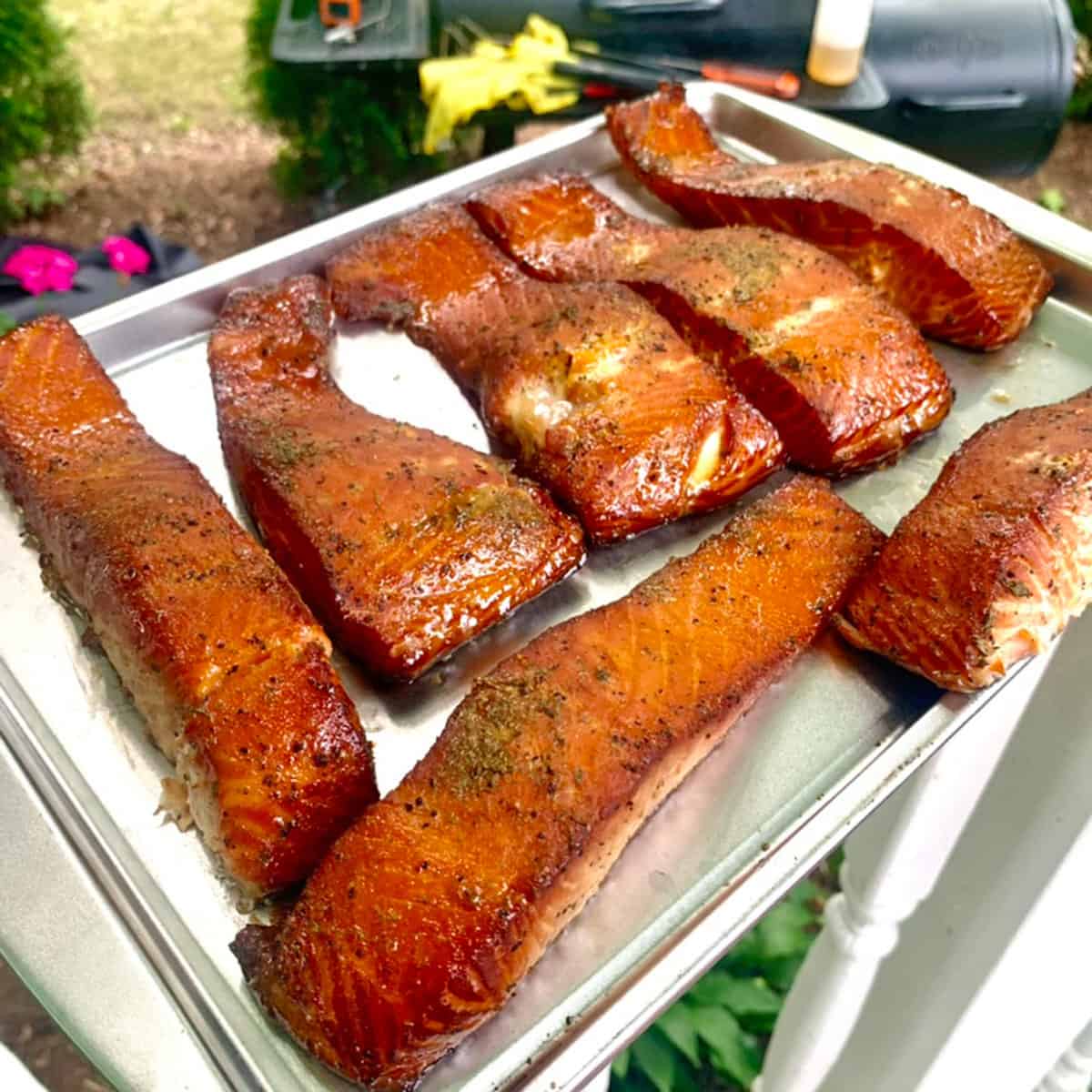
Smoked salmon is a popular and delicious option for seafood lovers. When it comes to the shelf life of smoked salmon, it can vary depending on the type of salmon, storage method, and whether or not the package has been opened. Cold-smoked salmon tends to have a shorter shelf life compared to hot-smoked salmon. Unopened packages of smoked salmon can typically last for several weeks in the refrigerator. However, once opened, it is best to consume smoked salmon within a few days for optimal freshness and flavor. Proper storage and handling, such as keeping it refrigerated and tightly sealed, are key to ensuring the longevity of smoked salmon.
Shelf Life Of Smoked Salmon
The shelf life of smoked salmon can vary depending on various factors. Cold-smoked salmon tends to have a shorter shelf life compared to hot-smoked salmon. Unopened packages of smoked salmon can typically last for several weeks in the refrigerator. However, once opened, it is best to consume smoked salmon within a few days for optimal freshness and flavor. Proper storage and handling, such as keeping it refrigerated and tightly sealed, are key to ensuring the longevity of smoked salmon. Smoked salmon can be a delicious addition to meals and can provide a unique flavor to various dishes.
Proper Storage And Handling Of Smoked Salmon
Proper storage and handling are crucial for maximizing the shelf life of smoked salmon. Here are some tips to ensure its freshness and flavor:
- Refrigeration: Smoked salmon should be stored in the refrigerator at temperatures below 40°F (4°C).
- Airtight packaging: Once opened, transfer the smoked salmon to an airtight container or wrap it tightly in plastic wrap to prevent exposure to air and moisture.
- Avoid cross-contamination: Keep smoked salmon separate from other raw or cooked foods to avoid the risk of bacterial contamination.
- Use within a few days: Consume smoked salmon within a few days of opening for the best quality and taste.
Following these storage and handling practices will help you enjoy the deliciousness of smoked salmon for a longer period. [27]
Conclusion
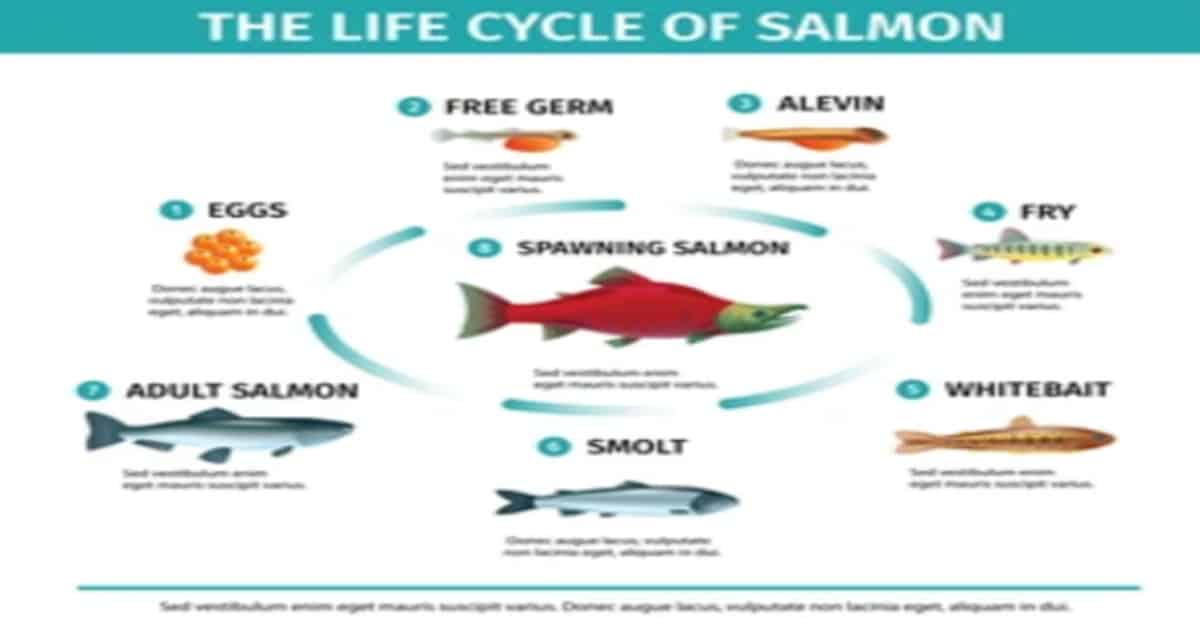
In conclusion, understanding the shelf life of salmon is essential for maintaining its freshness and quality. Whether it is fresh, frozen, cooked, or smoked, proper storage and handling methods are crucial for maximizing its shelf life. By following the tips provided in this article, such as refrigerating fresh salmon, freezing it properly, storing cooked salmon in airtight containers, and handling smoked salmon with care, you can ensure that your salmon stays safe to consume and retains its flavor for longer. Remember to use your senses and common sense when determining the freshness of salmon, and always prioritize food safety.
Summary Of The Key Points Discussed
In summary, this article has provided a comprehensive understanding of the shelf life of salmon and the importance of proper storage. Key points discussed include the factors that affect the shelf life of salmon, storage tips for fresh salmon, benefits of freezing salmon, proper freezing methods, how long cooked salmon can last, best practices for storing cooked salmon, shelf life of smoked salmon, and proper storage and handling of smoked salmon. By following these tips and ensuring proper storage, individuals can enjoy fresh and safe salmon for longer periods. [31][32]
Tips For Ensuring The Freshness And Safety Of Salmon Storage
To ensure the freshness and safety of salmon storage, it is important to follow these tips:
- Purchase fresh salmon from a reputable source and check for a firm texture and mild aroma.
- Store salmon in the coldest part of the refrigerator, ideally at a temperature between 32-38°F (0-3°C).
- Keep salmon in its original packaging or wrap it tightly in plastic wrap to prevent exposure to air and moisture.
- Avoid storing salmon near strong-smelling foods to prevent odor transfer.
- Use fresh salmon within 1-2 days of purchase or freeze it for longer storage.
- Follow proper thawing methods when defrosting frozen salmon to maintain its quality.
By adhering to these storage guidelines, you can ensure that your salmon remains fresh and safe for consumption.
Frequently Asked Questions – How Long Does Salmon Last?
Q: How long can fresh salmon be stored in the refrigerator?
A: Fresh salmon can be stored in the refrigerator for up to 2 days. It is recommended to place the fish in an airtight container or wrap it tightly in plastic wrap to maintain its freshness.
Q: Can I freeze fresh salmon for extended storage?
A: Yes, you can freeze fresh salmon for longer storage. Wrap the fish tightly in freezer-safe packaging, such as plastic wrap or freezer bags, and make sure to remove any excess air. Frozen salmon can be stored for up to 3-4 months without major quality loss.
Q: What is the shelf life of cooked salmon?
A: Cooked salmon can typically be stored in the refrigerator for 3-4 days. Make sure to store it in a shallow airtight container or wrap it tightly in foil or plastic wrap to maintain its flavor and texture.
Q: How can I tell if salmon has gone bad?
A: There are several signs to look for to determine if salmon has gone bad. These include a strong, sour odor, a slimy texture or sticky flesh, or any discoloration or mold growth. If you notice any of these signs, it is best to discard the salmon.
Q: Can canned salmon be stored for a long time?
A: Yes, canned salmon usually has a long shelf life. When unopened, it can be stored for up to 1-2 years beyond the date printed on the can. Once opened, it should be refrigerated and consumed within 2-3 days for the best quality.
Q: Can I eat thawed salmon that has been left at room temperature for a few hours?
A: It is not recommended to consume salmon that has been left at room temperature for more than 2 hours. Bacteria can multiply rapidly in the danger zone temperature of 40°F to 140°F (4°C to 60°C), which can cause foodborne illnesses. Always prioritize food safety by refrigerating or freezing salmon promptly.
Q: How should I store smoked salmon?
A: Smoked salmon can be stored in the refrigerator for up to 2 weeks when properly packaged. To prevent it from drying out, store it in an airtight container or tightly wrap it in plastic wrap. Freezing smoked salmon is also an option, and it can be stored for up to 3 months.
Q: Is it safe to eat leftover salmon that has been reheated?
A: Yes, it is generally safe to eat leftover salmon that has been properly stored and reheated. Make sure to heat it to an internal temperature of 165°F (74°C) to reduce the risk of foodborne illness. However, it is important to note that reheating may cause the salmon to become slightly overcooked and lose some of its original tenderness.
Q: Is there a difference in the shelf life of wild-caught salmon and farm-raised salmon?
A: The shelf life of wild-caught salmon and farm-raised salmon is generally similar. However, it’s essential to note that the processing, handling, and storage practices play a significant role in the overall freshness and preservation of the fish. Proper storage techniques should be followed regardless of the salmon’s source.
Remember, these are general guidelines, and factors like temperature, storage conditions, and the overall freshness of the salmon can affect its shelf life. Always rely on your senses and discard any salmon that appears or smells bad to ensure your health and safety.

A small, independently run fish and chip shop using quality ingredients cooked freshly in our kitchen to ensure great tasting food. All of our drinks are in glass bottles, and all of our takeaway packaging is recyclable or compostable to help reduce our impact on the environment.